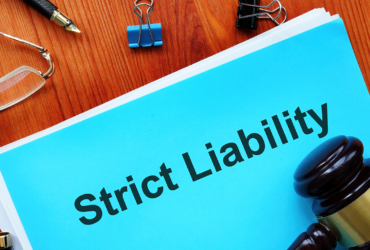Strict liability does not require proving the defendant was negligent or intended to cause harm to be liable for the plaintiff’s damages
Under modern-day law, a defendant in either a civil or criminal case can be held strictly liable for the damages caused without proving negligence in civil cases or specific intent or culpable recklessness in criminal cases.
Civil Cases – Strict Liability
In civil cases, the purpose of imposing strict liability on a defendant without establishing some wrongful or negligent mindset is because certain types of commercial activities require such a high standard of care, particularly where the health and safety of the public are at stake, that the mere happening of the dangerous occurrence is enough to impose strict liability.
The public policy advanced by strict liability is to encourage, indeed demand, that those that undertake unreasonably dangerous activities be forced to take extraordinary safety measures to avoid even the possibility of injuries to the general public.
Examples of civil strict liability include:
- dynamite blasting
- abnormally dangerous construction activities
- defective drugs
- defective products
- ownership of wild animals
Criminal Cases – Strict Liability
In criminal matters, the most example of a strict liability crime is statutory rape. Whether or not the offender should have known that the victim was not of age to have sexual relations is irrelevant, even if the minor lied to the offender about her age. If the victim was a minor, its statutory rape.
The public policy promoted here is to dissuade adults from having sex with a minor. Minors are conclusively presumed incapable of giving informed consent. Therefore, the public policy burden is on the adult.





